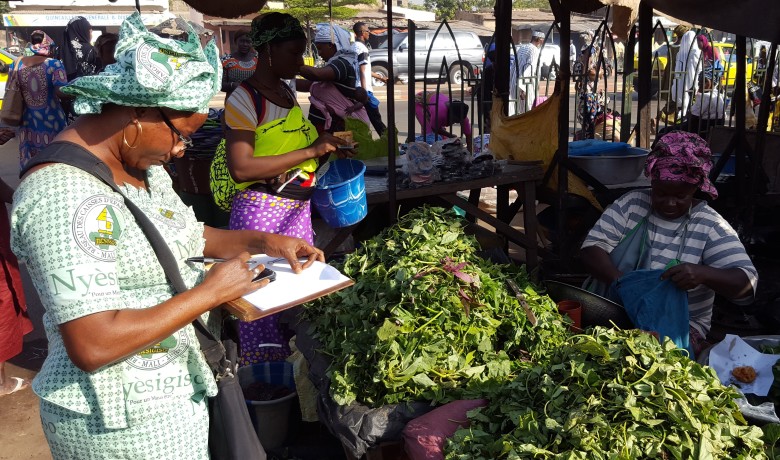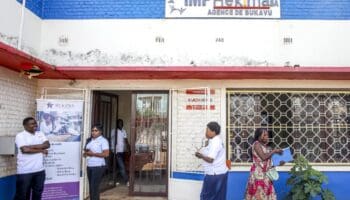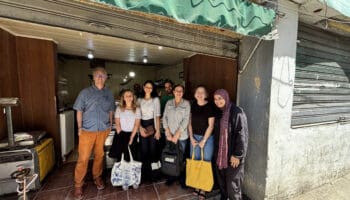
Ten years of war in Mali have not left Nyèsigiso unscathed. Created in 1990, this mutual network of savings and credit cooperatives was forced to close the doors of its cooperative caisse in Diré, in the north of the country. A major blow for beneficiaries. Mainly located in rural areas, the network works with the poorest people, including many farmers.
With 15 cooperatives, 58 branches and 10 counters across the country, Nyèsigiso, or “house of foresight” in Bambara, is a key player in the Malian economy. With its finances in dire straits, the company had to look for ways to preserve its mission. It was in this context that the mutual network turned to SIDI.
SIDI grants loans or takes equity stakes in structures that share its values. In addition, SIDI lends money without requiring collateral, and therefore with a high risk of loss. A risky gamble, but an essential one: it was by granting a first loan to Nyèsigiso in 2020, at a time when it was being decapitalized, that SIDI contributed to the recovery of this Malian mutual network.
“Our intervention created a leverage effect,” explains Jean-Baptiste Cousin, SIDI’s Partnership Officer. SIDI’s commitment has restored the confidence of other international donors and ” Nyèsigiso has been able to raise ten times the amount lent by SIDI”. The mutual network then ended the year with a “profit of 285 million CFA (over €435,000)”, and increased its equity to 7.19% of its capital.
Strong local roots
It was the strong local roots of the mutual network that convinced SIDI to invest. In a study carried out in 2022, 60 Décibels, a firm that measures the impact of companies, found that 91% of respondents said their quality of life had improved thanks to Nyèsigiso. The study also shows that almost 9 out of 10 customers had never before been able to access a service such as that offered by the mutual network.
Finally, while “60% of its members live in rural areas, often with an agricultural activity”.The study shows that most customers who take out loans from Nyèsigiso use the money for business expenses, mainly in the agricultural sector: “71% for agricultural inputs, 22% for labor”.says Jean-Baptiste Cousin.
On a day-to-day basis, Nyèsigiso has had a major impact on customers’ quality of life: 47% report an improvement in their income, 26% an improvement in their agricultural production, and 88% say they have improved their ability to plan their finances.
Making Nyesigiso sustainable
To continue this “beautiful story”, Nyèsigiso applied for and obtained a second loan from SIDI in 2021. Indeed, a cooperative network must manage to hold 15% of its capital in equity, which was not the case. ” They have a lot of members, but they’re rather poor people who aren’t in a position to contribute a lot of capital,” explains Jean-Baptiste Cousin. And if Nyesigiso forced its members to buy shares at a higher price, the risk would be that it would focus solely on the middle classes, and lose its target audience.
“We made a subordinated loan, which is quasi-capital: it allows us to make a long-term loan that the local banking authorities consider precisely as capital,” he continues. Better still, this type of loan acts as a guarantee for other investors, because here too the risk is very high: if the structure collapses economically, SIDI would be the last to get its money back!
After this second loan, it’s hardly surprising that SIDI has noticed a second leverage effect. ” For the moment, we have lent the equivalent of 500,000 euros” to the Malian organization, says Jean-Baptiste Cousin. The first loan is for three years, with a one-year grace period, and the second for five years, with a two-year grace period. Extremely favorable conditions for Nyèsigiso.
For SIDI, the risk remains, but it is assumed. And so far, so good. The partnership manager is delighted with this successful cooperation and the trust placed in Nyesigiso. The Malian mutual network reaches no fewer than 250,000 people in Mali. And the fact that it operates as a mutual network, electing local representatives to take joint decisions, means that people who are far removed from governance bodies can be brought into the various strata of the structure: “Nyèsigiso is also a school of citizenship”, he concludes.



